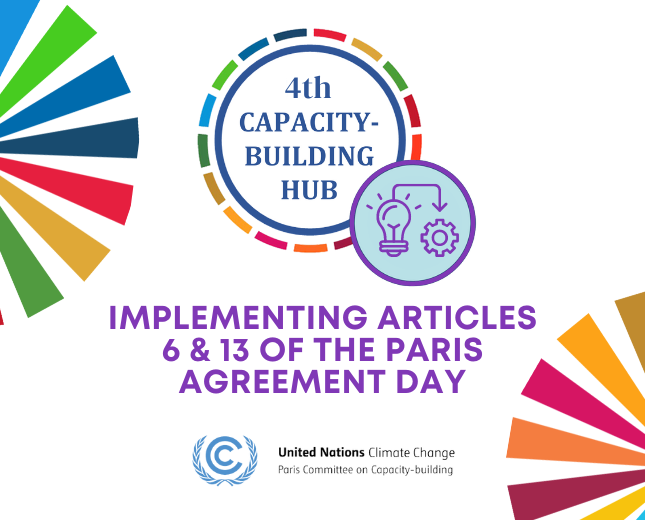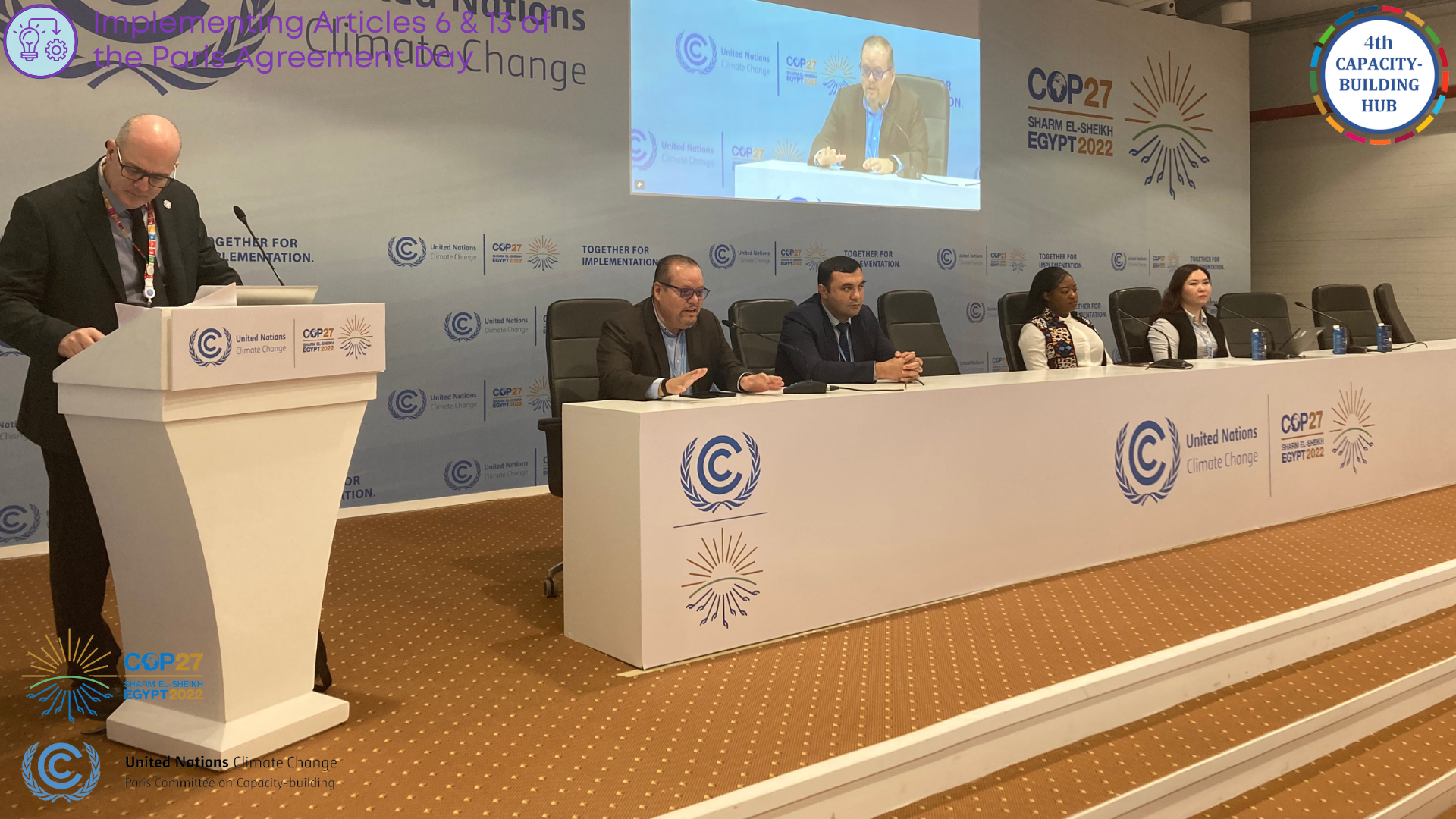Event Recording
Organizers
Background
The Food and Agriculture Organization of the United Nations supports governments and partners to design the right policies and programmes to end hunger, promote food security and promote sustainable agriculture. FAO is supporting countries to both mitigate and adapt to the effects of climate change through a wide range of research based and practical programmes and projects, as an integral part of the 2030 agenda and the Sustainable Development Goals. In particular, there are three main ways in which FAO works with countries to meet the requirements of the Enhanced Transparency Framework (ETF) of the Paris Agreement: providing support with enhancing national greenhouse gas inventories, tracking progress in achieving nationally determined contributions (NDCs), and tracking countries' efforts to adapt to climate change.
Objectives
This session aimed at giving a platform for counties and institutions that participated in capacity building activities to share their experiences, lessons learned and best practice, fostering peer-to-peer learning and knowledge sharing on the importance of capacity building and of strengthening national capacity to comply with Art13 of the Paris Agreement. The event aimed to bring concrete examples of involving Youth, Academia and national stakeholders to build long-lasting capacity for sustainable change.
Structure & Speakers
| 8 min |
Introductory remarks and presentation of FAO work on transparency at global and country level: Introduction to the transparency work of FAO at global and national level, including results from the survey to national CBITs
by Martial Bernoux, FAO
|
| 5 min |
Mainstreaming CBIT in National Programming:Bangladesh
by Md. Mahmud Hossain, Deputy Director (Climate Change), and Project Director, Bangladesh CBIT Project, Department of Environment, Ministry of Environment, Forest & Climate Change
|
| 5 min |
Mainstreaming CBIT in National Programming: Mongolia
by Undarmaa Khurelbaatar, Project coordinator at the Climate Change Research and Cooperation Centre of the Ministry of Tourism
|
| 5 min |
Mainstreaming CBIT in National Programming: Nicaragua
by Javier Gutierrez, Vice Minister of Environment and Natural Resources
|
| 5 min |
Mainstreaming CBIT in National Programming: Tajikistan
by Muzaffar Shodmonov, Deputy Head of the Center for the Study of Climate Change and the Ozone Layer
|
| 7 min |
ETF4Academia case study and Youth4ETF: Presentation of the work done with FAO on Youth and Academia, and launch of the publication
by Elizabeth Gulugulu, YOUNGO
|
| 15 min |
Q&A
Moderated by Martial Bernoux, FAO
|
| 5 min |
Closing
by Martial Bernoux, FAO
|
Key Outcomes
This session presented a variety of tools and experiences of enhancing transparency to build capacities.
- Firstly, FAO presented their Capacity Building Initiative for Transparency (CBIT) for Agriculture, Forestry and Other Land Use (AFOLU), which is a sustainable reporting procedure which ensures transparency and mentoring for country-specific challenges and constraints in implementing Enhanced Transparency Framework (ETF) requirements.
- Experiences from Tajikistan, Mongolia, and Nicaragua, were presented, emphasising the need for institutional sustainability and complex partnerships to ensure transparency.



